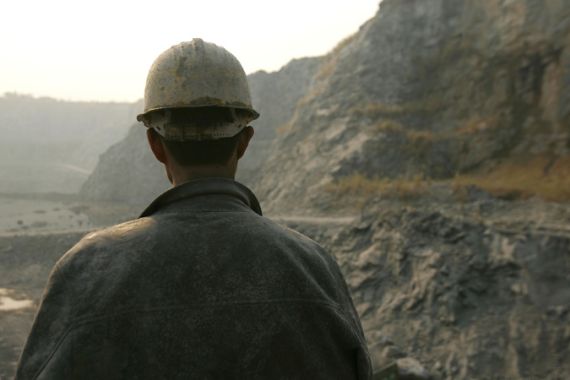China rules the rare earth
The global race to grab a share of rare earth metals in Central Asia has begun.

 |
| The most vast mineral-rich mining fields are located in central Asia [Al Jazeera] |
Asia is at the centre of an inevitable development of our digital world: the coming mineral wars.
The computer you are using to read this article is already involved in a global war.
Keep reading
list of 4 itemsAfter the Hurricane
World’s coral reefs face global bleaching crisis
Why is Germany maintaining economic ties with China?
Oil wars? Water wars? Sure – they will continue to define the geopolitics of the early 21st century. But in high-technology terms, nothing compares with the coming mineral wars. And the name of the game is rare earth.
Asia is the land of rare earth – the minerals that allowed the digital revolution to happen, and that are making green technology a reality. China controls no less than 95 per cent of the global production of rare earth.
The key player in this high-stakes game is Baotou Steel Rare Earth (Group) Hi-tech Co., from Inner Mongolia – the world’s largest producer of rare earth elements.
China has imposed export quotas on rare earth elements for three years – to boost its own high-tech industries. The Chinese master plan is to develop sophisticated smelting techniques for rare earth – instead of simply selling the raw product. When they get to that stage, Baotou Steel Rare Earth’s stocks in the Shanghai stock exchange will inevitably reach dizzying heights.
Greater China – including Taiwan – is the world’s top manufacturer and assembler of microchips, computers and network equipment, the soul of the internet.
So this whole process can be seen as yet another chapter in the Asian revitalisation of global capitalism – the most positive global development of the past three decades (and there have not been many).
Got niobium, will travel
China, Japan, South Korea, in addition to Germany, the US, Russia and France, all in the forefront of new technologies, are deeply involved in the mineral “Great Game”.
Most people in the world would make no connection between Samsung and the Salar de Uyuni – a spectacular salt desert in southern Bolivia. Yet Bolivia happens to hold enormous quantities of lithium.
No wonder when President Evo Morales visited Seoul, South Korea extended a luscious red carpet. After all, Samsung, Hyundai, LG and other South Korean industrial giants know that unlimited access to lithium is essential for controlling the global market of batteries for laptop computers, mobile phones and electric cars. Seoul is deep into a no-holds-barred investment strategy to guarantee its access to rare earth.
Virtually all US advanced electronics depends on rare earth. Late last year the US Energy Department listed the Top five “critical” rare metals for the production of clean energy; dysprosium, neodymium, terbium, europium and yttrium. They are all essential for the production of hybrid vehicles and optic fibers, for instance.
Up to 2025 the US will essentially depend on China to have access to these rare earth metals. So what to do? There are three possibilities; develop replacements, boost recycling or increase local production of rare earth – for instance by investing $500m in a giant mine in California.
From a Pentagon point of view, more critical are the rare earth metals on which the humongous US industrial-military complex depends for aviation engines and missiles. Once again, China is the only global supplier.
The European Commission (EC) has its own Top 14 mineral list – which includes cobalt (used in batteries for portable phones); palladium (for desalinisation); magnesium (used in refineries and steel mills); spath fluor (for the chemical industry); and niobium (of which 92 per cent of global production is concentrated in Brazil).
The myth of open markets already does not apply to critical natural resources. China imposing export quotas on rare earth is dictating the trend. States are now fighting hard to try to diversify their suppliers – as with the South Koreans courting the Bolivians.
The Japanese, for instance, knowing as much as they do that lithium, tantalum, germanium and all 17 rare earth minerals are essential for their high-tech consumer electronics, hybrid cars and precision industries, fret at the thought of a near-Chinese monopoly.
That’s why the Japanese have been on a whirlwind global tour – from Vietnam to South Africa, from Tanzania to Kazakhstan – to diversify their access and guarantee their supplies, before South Korea or even China itself get there.
Welcome to the post-digital world, where foreign policy won’t be dictated by oil and gas needs, but by cobalt, lithium and niobium.
Pepe Escobar is the roving correspondent for Asia Times (www.atimes.com). His latest book is Obama Does Globalistan (Nimble Books, 2009). He may be reached at pepeasia@yahoo.com
The views expressed in this article are the author’s own and do not necessarily reflect Al Jazeera’s editorial policy.
